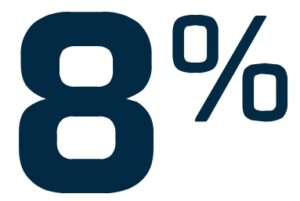Selling a Business: Has the Market Changed?
19 September 2022: Selling a Business: Has The Market Changed?
Selling a business is a complex and formidable undertaking in the best of times – and can be a grueling challenge in others. Those of you who have been trying to sell an overpriced business know exactly what I mean.
But even when selling a business that is properly-priced and which was properly prepared by the seller, changes in “the market” often impact how smoothly a change of ownership will unfold.
We are regularly asked about market conditions and how certain changes have or might impact the likelihood of successfully selling a business or the effect on valuations and prices paid. Now that we have nearly 3/4 of the year behind us, we have a sense of how the business-selling market has shifted.
__________________________________________________________________________________
We offer a comprehensive coaching program – both group coaching in our Brokers’ Roundtable community as well as one-on-one coaching – tailored to Realtors, business owners , buyers and anyone interested in valuing, buying or selling a business.
If you’d like to learn more, email me at jo*@*******************og.com
___________________________________________________________________________________
What a Difference a Year Makes
 As I’ve written previously, the last few years – 2018 through roughly 2021 – were pretty frenetic in our business. There was plenty of money schloshing around looking for a place to land, that money was cheap and buyers were plentiful. Valuations reflected all those positive aspects of the market and deals were getting done, sometimes at some hard-to-believe multiples. Selling a business in that market – especially one that was priced properly – was decidedly less challenging than a few years earlier.
As I’ve written previously, the last few years – 2018 through roughly 2021 – were pretty frenetic in our business. There was plenty of money schloshing around looking for a place to land, that money was cheap and buyers were plentiful. Valuations reflected all those positive aspects of the market and deals were getting done, sometimes at some hard-to-believe multiples. Selling a business in that market – especially one that was priced properly – was decidedly less challenging than a few years earlier.
However, the environment in which we work and the behavior we observe has changed. Buyers and sellers appear to be more cautious. Businesses are certainly still being sold but the conversations and negotiations between parties reflect a wariness on the part of both with regard to value and the reliability of future prospects.
_____________________________________________________________________________________
Our course, “Learn How to Value and SUCCESSFULLY Sell Businesses“, teaches you how to accurately value and successfully sell businesses.
Don’t Miss Out on the Coming “Silver Tsunami“!
There are several factors the seem to be contributing to the change including the high rate of inflation, rising interest rates around the world, the increasing cost of energy (the lifeblood of commerce), government-stimulated labor shortages, supply issues, war in the East and, not least, the utter collapse of even a semblance of a functional government in the U.S. – though Western Europe and the U. K. are hardly immune.
So, how is this litany of “issues” impacting us? What we’re seeing is both less aggressive valuations and deal structure informed by caution.
A Couple of Examples
Rising interest rates negatively impact valuations because they impact the buyer’s rate of return.
 To use a simple example, if you’re selling a business that has discretionary earnings (or “adjusted net” or whatever term you use to describe the answer to the question, “How much money will this business put in the owner’s pocket?”) of $700,000 and your buyer wants a 30% return on their investment, they can pay $2.3 million for that business. But if that $700,000 reduced to $650,000 because interest rates increase, your buyer can only pay $2.16 million.
To use a simple example, if you’re selling a business that has discretionary earnings (or “adjusted net” or whatever term you use to describe the answer to the question, “How much money will this business put in the owner’s pocket?”) of $700,000 and your buyer wants a 30% return on their investment, they can pay $2.3 million for that business. But if that $700,000 reduced to $650,000 because interest rates increase, your buyer can only pay $2.16 million.
Interest is an expense – admittedly a discretionary one but an expense nonetheless. But unlike most other discretionary expenses, with interest money leaves the bank account and goes into the pocket of someone other than the owner.
Similarly, rising inflation eats away at the value of every dollar, pound, Euro or yen at both the gross revenue and discretionary earnings level, further eroding value. A buyer will look a business’ future prospects through one lens when inflation is meandering along at 2% but through a completely different lens what it’s galloping ahead at 8.5%.
The Workaround
How are buyers and sellers dealing with these uncertainties (aside, of course, from exercising their right to vote the bums out)? Well, in uncertain times, ya gotta get creative, Bucko. And one of the creative ways buyers and sellers seem to be embracing – although often with the enthusiasm of embracing a porcupine in heat – is earn-outs.
I’ve discussed earn-outs in the past (here and here) but both personal and anecdotal evidence suggests they are being employed to a growing extent in the current environment.
Earn-outs can help soften the blow to the seller of a lower valuation as well as giving the buyer some degree of confidence that they aren’t overpaying for the business. It’s a form of contingent and deferred compensation that can close the gap between the parties but give each party and opportunity to benefit financially.
The Bottom Line
Structuring an earn-out can be complicated. From voting rights, board seats and vesting periods to non-compete agreements, lock-up periods and compensation, there are dozens of moving parts in an equity rollover and professional advisors experienced in such transactions are required.
 For example, taxes are big issue in an earn-out. Determining whether the eventual earn-out payments are compensation to the seller or part of the consideration paid for the business is another. And the answer to that question adds complications to the tax issues.
For example, taxes are big issue in an earn-out. Determining whether the eventual earn-out payments are compensation to the seller or part of the consideration paid for the business is another. And the answer to that question adds complications to the tax issues.
The importance of documentation – especially the language in the purchase and sale agreement – is critical to eliminating ambiguity both in the lead-up to the sale as the terms of the earn-out provision.
But earn-outs are a legitimate way to close the gap between how the acquired business is valued by both buyer and seller. And in the current market – with high interest rates, high inflation, business uncertainty and the increasing caution on the part of buyers that results from all of that – earn-outs might be the logical approach for the business you’re selling.
I’d like to hear from you. What topics would you like me to cover? How can we tailor these posts to be more useful to you and your business. Let me know in the comments box, below, or email me at jo*@*******************og.com.
If you have any questions or comments on this topic – or any topic related to business – I’d like to hear from you. Put them in the comments box below. Start the conversation and I’ll get back to you with answers or my own comments. If I get enough on one topic, I’ll address them in a future post or podcast.
I’ll be back with you again next Monday. In the meantime, I hope you have a safe and profitable week.
Joe
Searching For…
A mid-sized, well-funded private equity group contacted us about acquiring HVACR and Plumbing services in the Mid-Atlantic and Southeast U.S. states with discretionary earnings of $600,000 or greater.
If any of you know of something that might fit, please let me know.

#business #businessacquisition #sellabusiness #becomeabusinessbroker #businessbrokering #businessvaluation #MergersandAcquisitions #buyabusiness #sellabusiness #realtor #realestateagents
The author is the founder, in 2001, of Worldwide Business Brokers and holds a certification from the International Business Brokers Association (IBBA) as a Certified Business Intermediary (CBI) of which there are fewer than 500 in the world. He can be reached at jo*@*******************og.com

